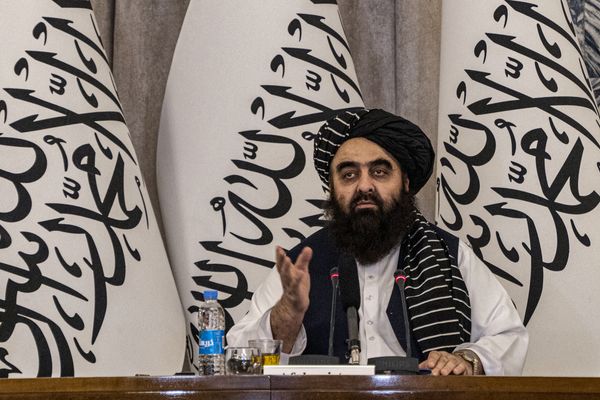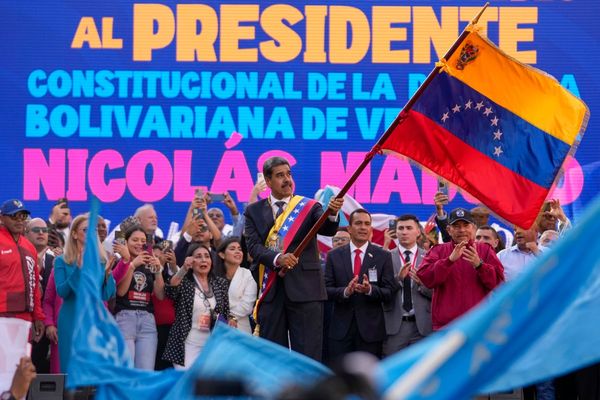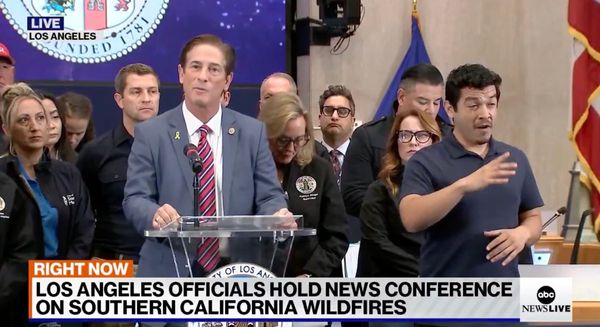
In his bid to weather a political storm spurred by one of the world’s worst coronavirus outbreaks, Brazilian President Jair Bolsonaro decided to lean on a familiar ally, the military, which helped seal his election three years ago. But after playing a loyalist atop the Ministry of Defense last month, part of a spate of cabinet replacements that triggered the simultaneous resignations of the chiefs of Brazil’s army, navy, and air force, Bolsonaro’s approval ratings have fallen to historic lows, leaving his political fate increasingly in jeopardy.
Bolsonaro’s latest move to concentrate power, with elections just over a year away, has raised concerns about him seeking further control over the security services, a bloc he leaned on heavily to ascend to Brazil’s top office.
“I think Bolsonaro viewed what happened to [former U.S. President Donald] Trump as something that could happen to him,” said Thomas Shannon, a former U.S. ambassador to Brazil who last served as the State Department’s number three official until 2018. “I think what he’s trying to do is ensure that as he heads toward elections, that he has complete control over the security services. He wants to make sure that he has people in positions of authority, especially in the armed forces, that are loyal to him as president.”
Experts doubt that Bolsonaro would be able to direct the security forces to do his bidding. But his drive for loyalty within the armed forces comes as he has continued to lose support ahead of the 2022 election, where he might face the popular former left-wing President Luiz Inácio Lula da Silva. The highly anticipated face-off could further deepen a crisis in civil-military relations, experts fear.
A former army captain who has repeatedly referred to Brazil’s armed forces as “my army,” Bolsonaro has brought more members of the military into his government than any administration since Brazil restored its democracy more than three decades ago after a 21-year-long military dictatorship. Although former U.S. officials still see continuity in the relationship, some in Brasília are worried Washington hasn’t been hard enough on Bolsonaro for seeking to place political loyalists in top jobs—including in the armed forces.
“Of course the Pentagon has bigger fish to fry,” said Mariana Kalil, a geopolitics professor at Brazil’s War College, in reference to the political conflicts in Myanmar and Hong Kong. But she added the Biden administration cares more about Brazil’s foreign policy being in line with Washington than Bolsonaro’s political purges. “They’re pragmatic,” she said of the U.S. position.
But even if the armed forces aren’t there to help save Bolsonaro, the president’s decision to draw them deeper into politics could be a sign of backsliding from Brazil’s nearly 40 years of democratic advances since the 1985 fall of its military-led dictatorship.
Bolsonaro “has some difficulty understanding what being the supreme commander in chief means,” Kalil said. “He thought the armed forces would be available as part of his political agenda.”
But the resignations showed Brazil’s armed forces still have a stiff spine when it comes to dealing with political pressure, former top officials in Brasília told Foreign Policy.
“I don’t think the armed forces would become the president’s Praetorian Guard,” said Celso Amorim, who served as foreign affairs and defense minister under three Brazilian presidents, including Lula da Silva. And beyond that, Bolsonaro’s support within the financial system, businesspeople, the judiciary, and the press continues to weaken, experts said.
Some in Brazil believe with the fragmentation of Bolsonaro’s power, a military intervention in his support is unlikely. “Even if he can carry out a coup with the armed forces, that would not be sustainable,” Kalil said.
And the shake-up has already had an impact. Instead of drawing the armed forces closer to Bolsonaro, the cabinet reshuffle that prompted the departure of the military chiefs has caused outrage in the highest ranks of the military. The outgoing defense minister and the armed forces commanders allegedly refused to meet the president’s request for more political support, sending a message to Bolsonaro that the armed forces would not “embark on undemocratic adventures.” The president’s move has reportedly sparked resentment among many service members.
Now, the military is starting to realize “there are real reputational risks that the military has taken on because it is now associated strongly with a government that has been unsuccessful at dealing with the pandemic,” said Anya Prusa, a senior associate at the Wilson Center’s Brazil Institute. In one such case, Bolsonaro’s former health minister, Gen. Eduardo Pazuello, an active duty officer, is currently the target of a Senate investigation into the federal government’s mismanagement of the pandemic. Brazilian Vice President Hamilton Mourão said this week he encouraged the former health minister to retire from the army over the ministry’s response to the pandemic.
Even though the higher echelons of the military would be unlikely to go along with a putsch, Bolsonaro still commands significant respect among the rank and file. But with a contested election on the horizon and political polarization on the rise in Brazil, Kalil worries a Trump-like scenario could emerge if Bolsonaro loses his reelection, especially if those in the lower ranks of the police and armed forces refuse to accept election results.
On the other side, the United States will have to find a way to deal with a politically polarized ally in South America—with few good options.
“Especially if Lula is a candidate, it will further polarize Brazilian society,” Shannon said. “Brazil is kind of mimicking the United States. Our politics are similar. A country that had been governed largely from the center is now being driven to the extremes. In those circumstances, it’s best for the United States to stay the hell out of the way.”







